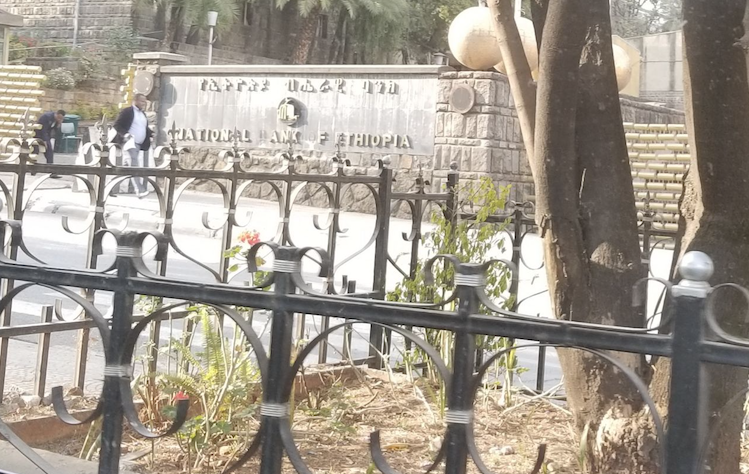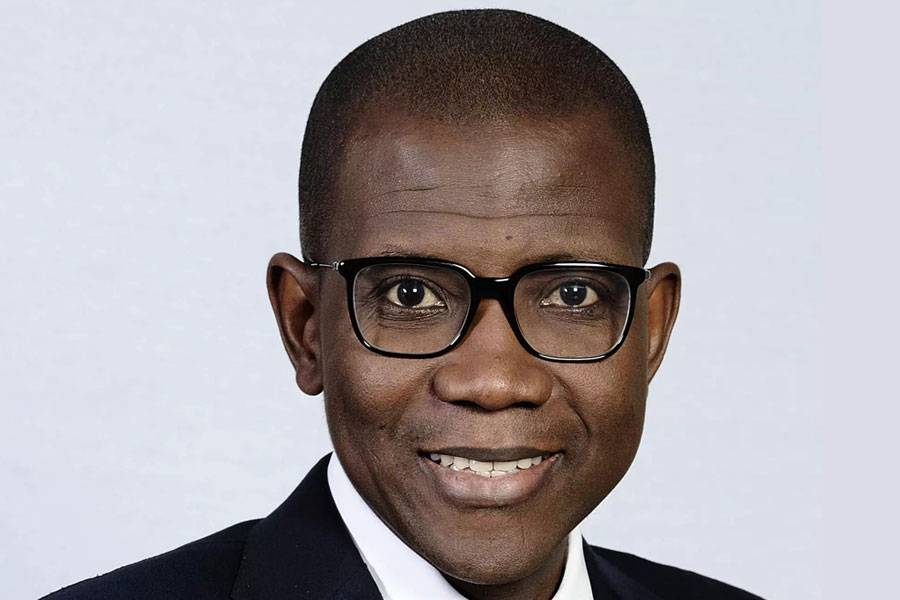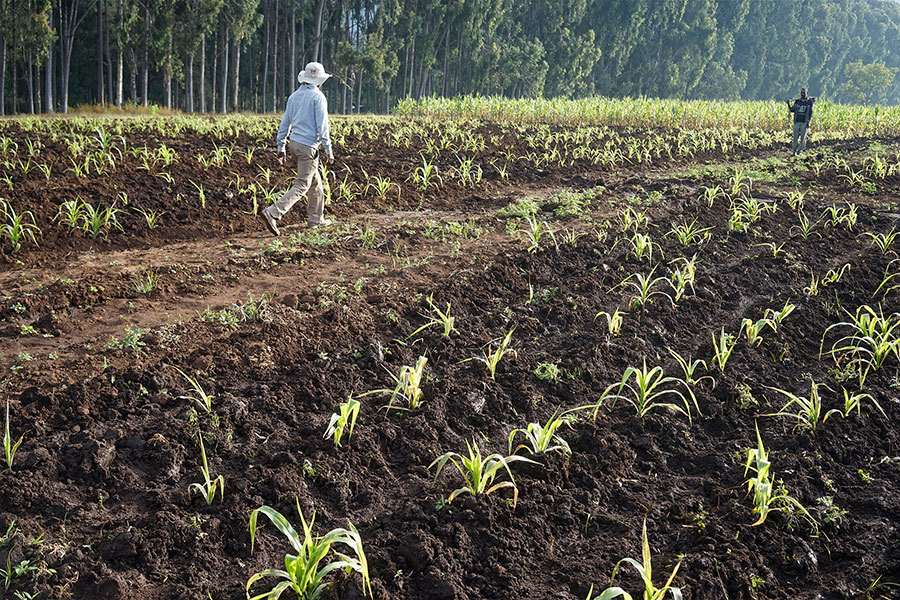
Viewpoints | Mar 12,2022
Apr 17 , 2020
By GELILA SAMUEL ( FORTUNE STAFF WRITER
)
 The National Bank of Ethiopia (NBE) has drafted a directive dubbed the Payment System Operators that aims at promoting financial inclusion. The regulatory bank also availed the draft directive for public consultation on April 16, 2020.
The National Bank of Ethiopia (NBE) has drafted a directive dubbed the Payment System Operators that aims at promoting financial inclusion. The regulatory bank also availed the draft directive for public consultation on April 16, 2020. A new directive that will lay out the infrastructure for interoperability, a system that enables financial and non-financial institutions to work with or use the parts or equipment of another system, is in the making.
The National Bank of Ethiopia (NBE) has drafted a directive dubbed the Payment System Operators that aims at promoting financial inclusion. The regulatory bank also availed the draft directive for public consultation on April 16, 2020.
The bill, which has been in the making for the past year, considers licensed financial institutions as payment system operators by default. In contrast, any other non-financial institutions have to get authorisation from the NBE to operate payment systems.
Payment system operators include non-bank automated teller machines (ATM), payment switch operators other than the national switch, non-bank point of sale operators (PoS), non-bank mobile point of sale (m-PoS) operators and online payment platform processors. The authorised payment system operator has to be owned by Ethiopian nationals or a foreign national of Ethiopian origin, but no individual can hold a stake of more than 40pc.
Eth-Switch S.C., an entity owned by a consortium of all banks established with 80 million Br in capital seven years ago, is the national switch operator. Any financial institution other than the central bank cannot own a stake of more than 20pc, whereas individuals cannot own more than one share in the national switch operator at first entry or afterwards.
The minimum paid-up capital to function as a payment switch operator is 20 million Br, whereas a non-bank ATM operator has to cash in paid capital of 15 million Br and should have no less than 15 ATMs.
In the case of non-bank PoS and m-PoS, one has to present a minimum paid capital of one million Birr and at least 50 machines either owned outright or leased. Any payment system operator that juggles more than one system has to issue a paid capital of the sum of the individual systems.
An applicant has to fulfill comprehensive documentation with detailed data that demonstrates the operator’s knowledge of the subject, signed documents on the features and modalities of the system and other documents requested by the national bank.
Upon receiving the application, the central bank has to give a response within 60 days. The pilot period of the system shall remain for three months after a detailed pilot plan is given a green light by the central bank.
The payment system operators are also expected to write up rules on the governance, management and operation of the system with detailed information on the risk, objective and disclosed criteria for participation.
Eth-Switch shall be the national switch for retail payment, ensure inter-connectivity with other switch operators and payment service providers, and clear the way for all of the electronic transactions.
"This is something we have been waiting for for a long time now," said Yilbes Addis, CEO of Eth-Switch. "We have had a good discussion with the officials of the national bank on the consultation."
"We hope to finalise most of our systems by the end of April and commence work at the beginning of May," he added.
Switch operators will connect with the national switch operator. They have to report all of their transactions to the national switch operator or financial institutions as set by the standards of the duo. They should also have two network links, one for service providers and the second dedicated to the national switch.
The ATM operator should also denominate with local currency for withdrawals and deposits, whereas a foreign exchange ATM shall show the status of the functionality. The terminal stalls of the ATM shall have international and domestic card schemes with an updated version each time it is available.
The downtime of an ATM shall not be more than 24 hours, and, if not fixed, the operator shall post a notice on the display of the ATM. International online payment processors are allowed to provide a service in Ethiopia if they come after having an exclusive agreement with a financial institution and are approved by the NBE.
The directive is more liberal as compared to the previous fintech directive, according to Alemu Demisse, a fintech consultant with close to a decade of experience in China.
"Issuing PoS will open doors for a payment system at the small and micro-level and the online domestic payment service gateway," he said.
PUBLISHED ON
Apr 17,2020 [ VOL
21 , NO
1042]

Viewpoints | Mar 12,2022

Radar | May 20,2023

Radar | Jul 06,2019

Radar | Jun 14,2020

Editorial | Jun 17,2023

Viewpoints | Aug 16,2025

Radar | Dec 04,2022

Radar | Jan 09,2021

Radar | Aug 20,2022

Fortune News | May 10,2022

Dec 22 , 2024 . By TIZITA SHEWAFERAW
Charged with transforming colossal state-owned enterprises into modern and competitiv...

Aug 18 , 2024 . By AKSAH ITALO
Although predictable Yonas Zerihun's job in the ride-hailing service is not immune to...

Jul 28 , 2024 . By TIZITA SHEWAFERAW
Unhabitual, perhaps too many, Samuel Gebreyohannes, 38, used to occasionally enjoy a couple of beers at breakfast. However, he recently swit...

Jul 13 , 2024 . By AKSAH ITALO
Investors who rely on tractors, trucks, and field vehicles for commuting, transporting commodities, and f...

Nov 1 , 2025
The National Bank of Ethiopia (NBE) issued a statement two weeks ago that appeared to...

Oct 25 , 2025
The regulatory machinery is on overdrive. In only two years, no fewer than 35 new pro...

Oct 18 , 2025
The political establishment, notably the ruling party and its top brass, has become p...

Oct 11 , 2025
Ladislas Farago, a roving Associated Press (AP) correspondent, arrived in Ethiopia in...